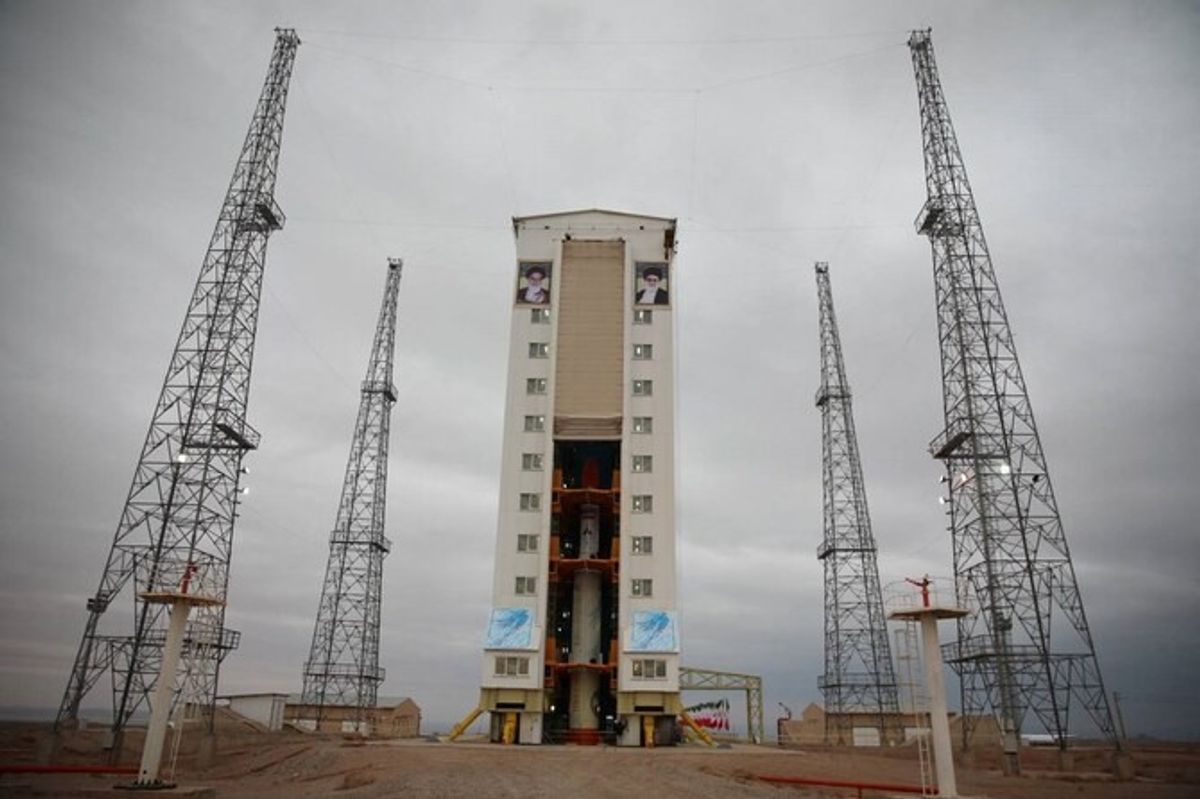News Desk
The News Desk provides timely and factual coverage of national and international events, with an emphasis on accuracy and clarity.

A handout picture provided by the Iranian Defence Ministry on January 28, 2024 shows Iran's two-stage Simorgh (Phoenix) satellite carrier on a launch platform at an undisclosed location.
File/AFP
Launch carried "orbital propulsion system" and two research devices into a 250-mile orbit
U.S. military did not comment on launch
Launch occurrs amid rising tensions in Middle East
Iran announced on Friday that it successfully conducted a space launch, marking the latest milestone in a program Western nations allege is linked to Tehran’s ballistic missile development, The Associated Press reported.
The launch employed Iran’s Simorgh rocket from the Imam Khomeini Spaceport in Semnan province. The site serves as the hub for Iran’s civilian space operations.
The Simorgh carried what officials described as an "orbital propulsion system" and two research devices into a 250-mile orbit. The system may enable Tehran to adjust satellite orbits, advancing its goal of achieving geosynchronous capabilities. Officials stated the payload weighed 660 pounds, heavier than previous launches.
Independent verification of the launch’s success was not immediately available. The U.S. military did not comment on the development.
Rising tensions and Western concerns
The launch occurred amid heightened tensions in the Middle East. These include Israel’s war with Hamas in Gaza and a tenuous ceasefire in Lebanon.
The U.S. has criticized Iran’s satellite launches, claiming they violate a U.N. Security Council resolution and employ technology applicable to ballistic missiles capable of carrying nuclear warheads. U.N. restrictions on Iran’s missile program lapsed in October 2023.
"Iran’s work on space-launch vehicles — including its Simorgh — probably would shorten the timeline to produce an intercontinental ballistic missile, if it decided to develop one, because the systems use similar technologies," a U.S. Director of National Intelligence report noted in July 2024.
Under former President Hassan Rouhani, Iran slowed its space program to avoid escalating tensions with the West. His successor, Ebrahim Raisi, accelerated the program before his death in a helicopter crash in May. Current President Masoud Pezeshkian, who has expressed interest in negotiating sanctions relief, has not clarified his administration’s stance on space development. This marked the first Simorgh launch under his leadership.
In a parallel effort, the Revolutionary Guard conducted its own successful launch in September.
Iran insists its space and nuclear programs are for civilian purposes. However, U.S. intelligence and the International Atomic Energy Agency (IAEA) assert Iran had a military nuclear program up until 2003.
The IAEA has warned that Iran now possesses enough highly enriched uranium for multiple nuclear weapons if it chooses to produce them.
Tehran denies seeking nuclear arms, maintaining that its efforts are peaceful.










Comments
See what people are discussing